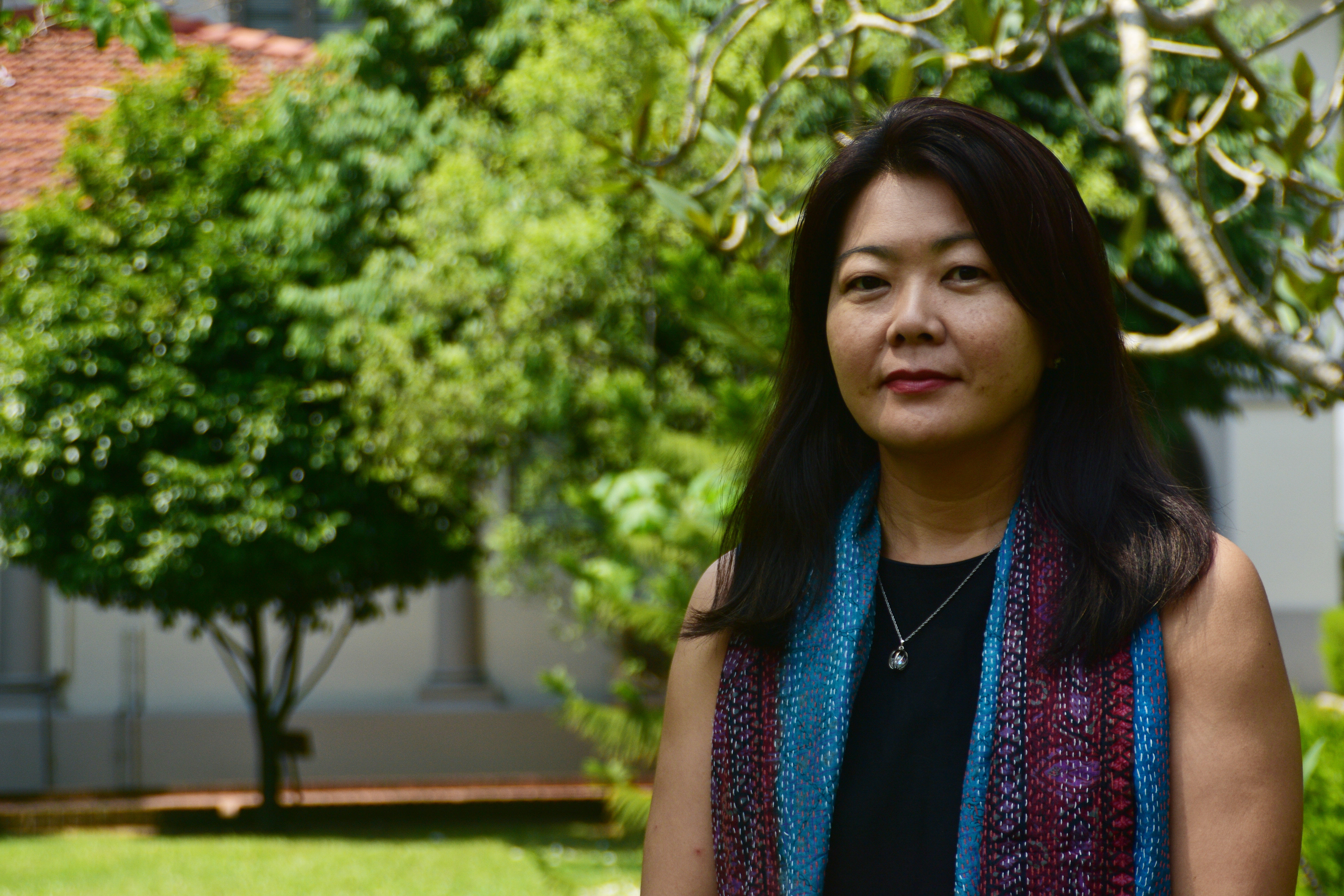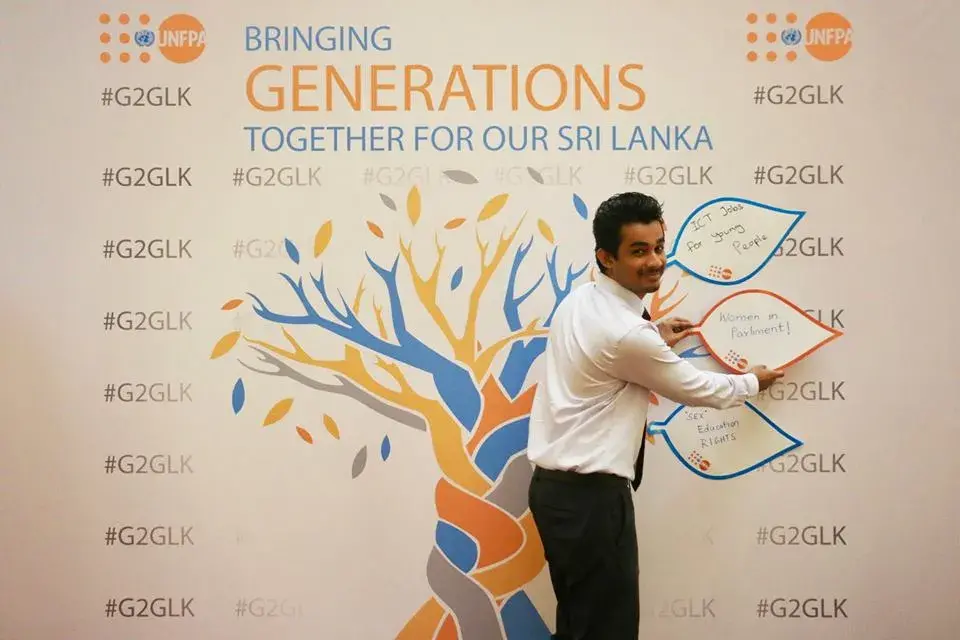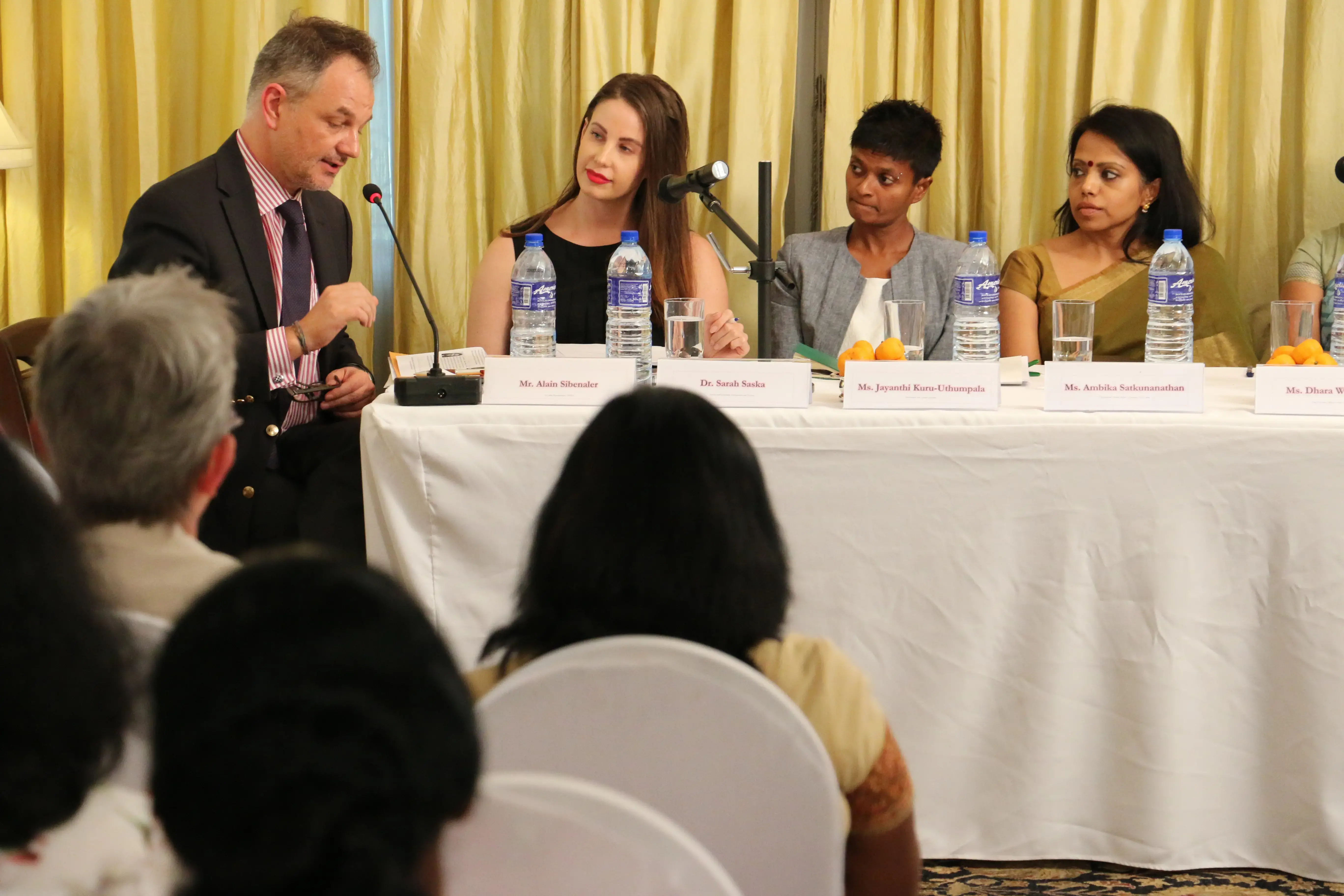Opinion Editorial by Ms. Ritsu Nacken, United Nations Population Fund (UNFPA) Representative, Sri Lanka and Country Director, Maldives
I heard George Floyd’s words in my home in Sri Lanka, where my family and I were under curfew. In the days that followed, we saw the pain of his community resonate across the world. I am Japanese – and we are not a culture typically comfortable with public protests – but I saw Floyd’s death become a rallying point for my compatriots who took to the streets of Tokyo, Osaka and Kyoto, chanting “I can’t breathe,” as they protested police brutality against immigrants and ethnic minorities. In the middle of a pandemic and global lockdown, the Black Lives Matter movement had struck a chord, and now we could hear it everywhere.
Overnight it seemed “I can’t breathe” was no longer limited to a protest against police brutality. It had become a rallying call that encapsulated how the crises of our times were all inextricably intertwined and how we all need justice in our lives and communities.
For those minorities dying in disproportionate numbers during this pandemic, “I can’t breathe” is a cry that acknowledges how generations of discrimination, inequality and poor access to healthcare are proving fatal.
For survivors of domestic violence and abuse, “I can’t breathe” is what it feels like to be trapped in your home with your abuser as the violence escalates, knowing that the system has failed you.
For a planet facing the existential threat of climate change, “I can’t breathe” is literal, underlining how we are choking on polluted air in our cities or gasping as entire towns go up in smoke when wildfires devour drought-stricken lands.
As I write this, we mark a World Population Day unlike any other my generation has seen. I believe the COVID-19 pandemic is an unprecedented crisis… and it clearly calls for unprecedented action.
At the United Nations Population Fund (UNFPA), my team and I have long observed, experienced and discussed how our challenges are intersectional. We know that the fight for human rights and gender equality is intimately connected to accessing sexual and reproductive health, to education and opportunities for adolescents, to fighting for the rights of women and girls and to issues related to populations and development as a whole.
From this perspective, this pandemic is like the domino falling at the start of a very long chain.
It has sent us into the freefall of an economic recession, during which women are more likely to be unemployed than men and to be bearing the brunt of caregiving and chores in the household. Girls, who already tend to be confined to the home in conservative societies, now have even fewer opportunities to study, or pursue economic independence. Yet, policy makers and planners are often unaware of the different needs of women and girls.
In the Maldives, we expect a rise in unintended pregnancies in recent months, and we know that economic stress applied by such a development can be crushing for a family or an individual in the long-term, compromising the potential of existing children and sending families tumbling into poverty.
Meanwhile, with COVID-19 absorbing so much in the way of attention and resources, campaigns against Female Genital Mutilation (FGM) and child marriage have also seen serious setbacks in this island nation. Such harmful traditional practices could have serious health implications, and should not be inflicted on young children since they cannot offer any kind of meaningful consent. Qualitative studies from UNFPA have established that FGM and child marriage can derail women’s lives, and that what happens to a woman, often happens to her family - when she is deprived of health and autonomy, her children are likely to face the same challenges, and to pass it on in their turn.
How to keep our children healthy is a concern for Sri Lanka as well. Sri Lanka is a model for the region on how to create affordable, accessible healthcare. When it came to maternal and newborn health, the island was preparing to make a final push. However, in the COVID-19 era, the race is suddenly exponentially harder. Regional disparities in quality of service and access to healthcare must be remedied, while Sri Lanka’s wonderful network of public health inspectors and midwives must be provided the infrastructure, training and equipment they need to respond appropriately to the pandemic and still continue to save lives.
Meanwhile, at the other end of the spectrum are the elderly. Sri Lanka has one of the fastest-growing ageing populations in South Asia and we know that people over the age of 60 are among the most vulnerable to COVID-19. Within this segment of the population, older women are doubly vulnerable. Having spent more time in unpaid work than men, they are more likely to be poor and struggle to access resources and opportunities.
There is another domino that we cannot afford to ignore, one with frightening implications for everyone but especially for the most vulnerable among us. Even as COVID-19 dominates the headlines, climate change is still unfolding with devastating effects. Last year, the 2019 United Nations Climate Change Conference, also known as COP25, brought countries together to discuss how to reduce emissions and support at-risk populations. On reflection, it is clear that the fight to defeat COVID-19, addressing the issue of inequality, and the struggle to contain climate change have a few things in common.
One, is that there is no more room for trade-offs and easy answers. We have passed the point where we could afford sacrificing the environment for economic growth a long time ago. We need to take these challenges as a whole, as a complex adaptive system. Another is that it must be a global effort, or we will fail. It is time to strengthen multilateralism, not weaken it. As a result of these crises, we have an unprecedented opportunity and the most urgent motivation possible to pursue equitable, sustainable and just development. Moving forward, we cannot afford to make the same mistakes, rely on flawed strategies or ignore the systemic issues that have turbocharged them. Fortunately, we do not have to go back to the drawing board to discover what our priorities should be.
Twenty-five years ago in Cairo, at the International Conference on Population and Development (ICPD), the world leaders embraced a visionary Programme of Action that emphasised dignity and human rights, good health, security of place and mobility, good governance and accountability, and sustainability. Sri Lanka and the Maldives were among 179 countries that supported this ground-breaking programme of action. Last year, they reaffirmed their commitment to these principles at the Nairobi summit. Now, it is time that we all walk the talk.
We cannot afford to postpone these discussions till the pandemic has passed, rather it has become obvious that without justice, equality and sustainability, we will have no future: we need Universal Health Care, that ensures everyone to be part of the system, if we are to defeat COVID-19; we have to address systemic racism, stigma and inequality if we want to have safe and harmonious societies; we have to invest in a green economy if we are to protect the livelihoods of a new generation and still save our home planet; we have to ensure the rights of women and girls, if we want our families, communities and countries to prosper.
This year, we are to celebrate the 25th anniversary of the Beijing Platform for Action. While we have come a long way in terms of women’s rights and gender equality, we have a long way to go before we achieve true equality. In Sri Lanka and the Maldives, governments can start by ensuring women are well represented on task forces planning our recovery from COVID-19. In fact, any recovery strategy, national plan or policy will only succeed if it accounts for the concerns and needs of women and girls, who make up half of the population.
This World Population Day, as thousands around the world chant “I can’t breathe”, let it be a wakeup call for the world. Every one of us can engage and act together to build a more equitable, sustainable and just future. In the face of tragedy and suffering, we must step up and step out, not step down. Together, we can do the hard work and build meaningful alliances that bridge the divides between us. This breath and the next, our very lives and those of future generations, depend on it.





